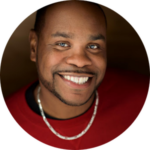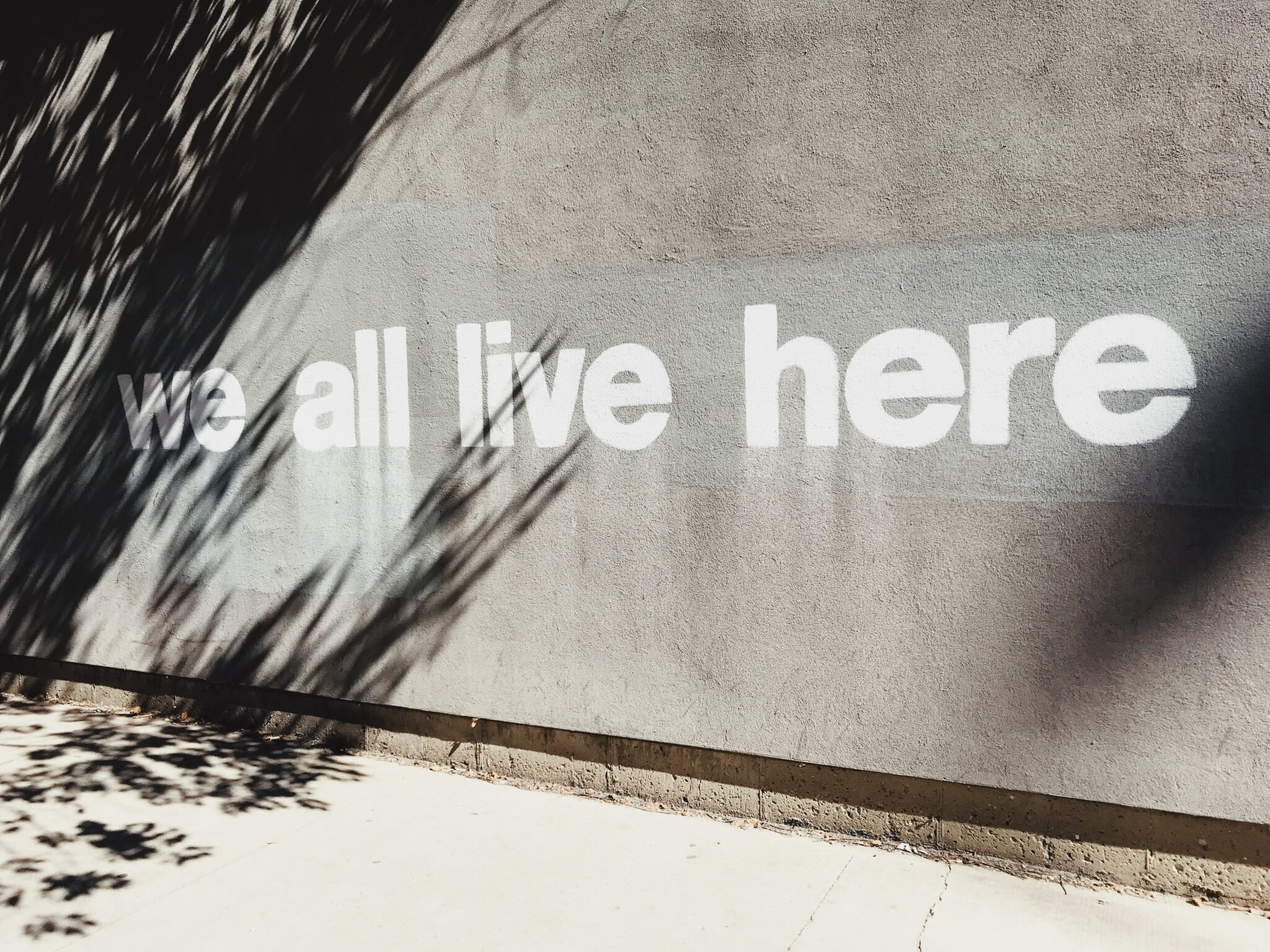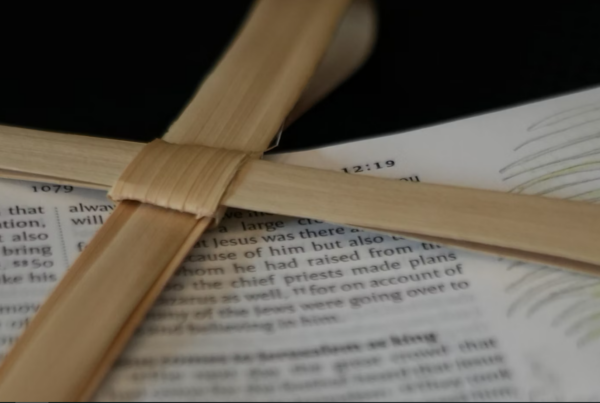I grew up with that mindset that getting out of the neighborhood I grew up in was not only success but also God’s will. God flipped all of that on its head, bringing me back to my neighborhood after college without any idea or thoughts or hopes of pastoring a church, to find myself the lead pastor of Canaan Community Church on the South Side of Chicago. Suddenly, I was back in the same neighborhood I grew up in, pastoring a church full of people who knew me long before I was a pastor, some who helped raise me, and some who grew up with me. That experience has shaped what I believe about living in and loving our neighborhoods as Jesus would.
This material was originally recorded as part of the Renovations Project. It has been lightly edited and condensed for clarity.
I was born and raised in the Englewood neighborhood on the South Side of Chicago, and later, I was the senior pastor there for 15 years. Lots of people from neighborhoods like mine have the mindset that success is equal to escape or leaving, because Englewood would be a neighborhood that maybe you would drive through but not drive to, depending on where you were from.
What I learned over those 15 years, being back in the neighborhood I grew up in, and what I hope to unpack here is what I believe ministry and mission are hinged on: falling in love with the place where God has put you. Because when you fall in love with the place, you inevitably fall in love with the people. You begin to see God in new ways, and then you see and recognize the people who are made in God’s image all around you. So Englewood has made me a better person, a better pastor, and a better follower of Jesus.
Falling in love with where God has put us
How do we learn to fall in love with our place, our neighborhood? I don’t know if it’s something you can learn as much as something you have to experience. When I became pastor of Canaan Community Church in 2006, it was a traditional African American Baptist church on the South Side of Chicago, where most people drove in from suburbs and places outside of the city. At one point, they had lived in this neighborhood and were now moved out, but they had to keep their connection to the neighborhood, mostly through church.
I came back to my childhood neighborhood after college with a different mentality. I had this strong urge that I could not leave this neighborhood and have a different experience than the people who were living around this actual building. The people who live in this neighborhood live around the church, and so my family and I moved right back into the neighborhood that I had worked so hard to move out of. Even after moving in, I had the attitude that I was only there because God wanted me to be there. I was only there because I had to fix the place—not live in it, not dwell in it, not flourish in it, but fix it. We Christians love to fix stuff, don’t we? We love to bring Jesus with us to places and say, “Oh, now that we’re here, things will be better; we’re bringing God here.” As if God is not already in every place all around the world.
I think the big epiphany came for me as I started to get more involved in the neighborhood, meeting my neighbors, meeting new people, all the while thinking that I was God’s gift to them. What I began to learn was they were actually God’s gifts to me. And that’s when I began to see what leadership truly looks like. I saw people who were loving my family and me when I was still setting my house up like a fortress and didn’t want to let anybody in. I figured, “We go through the back door, park in the garage only, don’t hang out in front. I don’t want my daughters playing with those other kids in the neighborhood because I don’t know their parents or whether it’s a godly home.” All of that. But God allowed some things to happen in my community, and I began to need my neighbors, and I saw that translate into what the church needed.
Maybe six weeks after becoming pastor of Canaan Community Church, it was Mother’s Day, and Mother’s Day is a huge holiday, especially in the Black church. You have people who only come to church on three Sundays out of the year: Christmas, Mother’s Day, and Easter; we call them CME members. This was going to be my first time to really prove to people that, as a 26-year-old young man, maybe I could handle this big responsibility as the senior pastor of this church. I was ready to preach, and the church was full. My mom was so happy in her little church lady hat and her flower on. But right when I was about to preach, a young man came inside the church, pulled another young man out, and about six or seven guys on the front steps of the church began to beat him up.
I didn’t know what to do. I yelled for help, and guys in the church went running and a melee started on the front steps of the church, on Mother’s Day morning. It ended up that one of my deacons who was an off-duty police officer broke it up. He told the men to stop, but they punched him in the face, and he fell to the ground. By the time I got to the church door, I heard gunshots. When I got outside, I realized it was actually my deacon, the off-duty police officer, who shot in the air, trying to get everything to stop. It worked; everybody dispersed. Then police came, fire trucks came, ambulances came, news trucks came, and I’d been pastor all of six weeks. As I walked back in the church, after everything was settled, I realized in that moment that God was actually speaking to us. While we were inside in our suits and dresses and hats, singing songs, we were completely disconnected from what was going on around us in the neighborhood.
Love your neighbor(hood)
That incident made me ask a few questions: Why didn’t our neighbors see our space as so sacred? Why didn’t my neighbors see it as special? Why weren’t they happy and excited it was Mother’s Day?
Because we were so disconnected to what was happening in our neighborhood around us, God said, “If you won’t get outside of these walls and actually meet me on the streets around this parish, I’ll bring your neighbors in to meet you.” From that moment, Canaan Community Church became a place where we’ve tried to understand that if God’s greatest command is to love God with all your heart, mind, soul, and strength, and second, to love your neighbor as yourself, that maybe also it’s not enough to love your neighbor; you should also love your neighborhood. That’s been our mantra: we’re not a church that just loves our neighbor, but we love our neighborhood. God created it, God sustains it, and God is already there.
Related: How prioritizing the needs of the community increases your welcome
That expanded view led us to know that no matter what society says, the city says, or anybody else says about our community, there are no God-forsaken places. But there are church-forsaken places: places where the church decided, “That place is too far gone. I won’t live there. I won’t participate. I’ll only go help there.” When we talk about what it really means to be present in your place rather than trying to be a fixer, what we have to hold onto first and foremost is that when God created this neighborhood or that place, God was not saying, “I’m creating the world for you to go do ministry in.” That was not God’s purpose.
When I think about a church’s responsibility as a steward of the place where God has put it, it means that we no longer come in and think that we know what’s best for the people or a place, even if we’re not necessarily in agreement with everything that the culture stands for. It’s not our job. I tell people all the time that I believe that God has been very clear about our responsibility, not only of the church but for us as humans in general. A lot of times, we try to usurp God’s responsibilities and try to do things that God has clearly set himself up to be responsible for. Things like changing hearts or creating the world—we don’t do that. We don’t have the power or the capacity to do that; God does that. Instead, God gives us stewardship over those things.
Related: Practice creation care and good neighbor-hood every day
How not to be in the neighborhood
When I talk to pastors about how we should lead our congregations in community, the first step is to actually become a part of the place. Here’s where the church often falls short. We fall short because our connection to community is only set up in one of three ways.
One way is that we set ourselves up as a fortress in a community. It’s all about what goes on inside our edifice. We only are concerned about the people who have church membership, and once you give your life to the Lord and get your name on the membership rolls, then you get help with finances and food and all that. Since it’s a fortress, once you get inside of the fortress, you are protected.
The second way is that we set ourselves up as a savior in the neighborhood. That means that we might do things for the community, like have a clothes closet or a food pantry. We tell people in the community what time the clothes closet or pantry is open, which is usually the most convenient time for us and our staff at our church. Prior to being open, we have people stand outside until we’re ready, because we don’t want people to mess with our building. They’ve got to come in and go the way we tell them to go, and leave the way we tell them to leave. The only way we interact with our community is through how we help them, so if it’s not received in the way that we think it should be, then the people we serve are ungrateful. Nobody wants to volunteer anymore at the food pantry because, “Those people are so ungrateful. I woke up early on a Saturday morning to cook chili for them, and they didn’t even say thank you.” That’s the savior mentality.
How to be a partner of the community
I propose a third way of operating in our community, and that’s as a partner. A partner is a church that doesn’t make decisions for its community without their input. Instead, we sit down with community members, whether they’re members of our church or not, whether they are people of faith or not, and we say, “We all live here. What would it look like for us all to flourish in this place as a community?” What if we sat down with all of the community members and worked out a way to build greater infrastructure at our local park, where all the children can now have a safe place to play, with nice swings, nice slides, even when vacation Bible school is not on and the church is not open? What if we sat down as the people of God and said that we want to see the community flourish. You don’t have to be in our membership rolls to receive financial assistance; financial assistance is for people who are poor or who need financial assistance; it’s not just people of faith who need financial assistance.
Related: How did people practice hospitality in the Bible, and what does it look like today?
Those small nuances—loving your neighborhood and being a partner of the community—actually make us people who are concerned about the places that God has created. I have this crazy notion that when you start living like Jesus, when you start loving people the way that Jesus would—unconditionally, not based on what they’ve done for you but just because they’re created in the image of God—then maybe people might begin to ask you questions about why you love them even if they aren’t responding the way you hoped. You can respond with a great response, “Well, let me tell you about this man named Jesus who loved me so well.” But a lot of times we want to introduce people to Jesus before we’ve ever introduced them to what Jesus would look like. The bottom line is sometimes people aren’t ready for a Savior; sometimes they just need a neighbor, and if they can get a neighbor, maybe we can lead them towards the Savior.

Renew your church’s imagination for ministry
The Renovations Project helps leaders learn, together.
- Thought-provoking masterclasses
- Personalized coaching
- Immersive visit to a ministry innovation hub
- Ministry innovation grants up to $5,000

Jonathan Brooks
Jonathan “Pastah J” Brooks is a pastor, speaker, writer, artist, and community activist. A lifelong resident of the Chicago area, he is a firm believer in investing in your local community. After serving as senior pastor of Canaan Community Church in the West Englewood neighborhood, he is now co-lead pastor at Lawndale Christian Community Church in the North Lawndale Neighborhood. He participated in listening sessions about innovation hosted by the Reformed Church in America.



